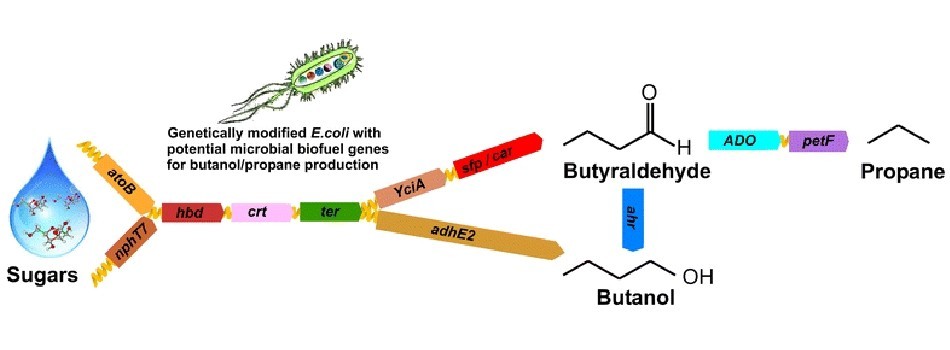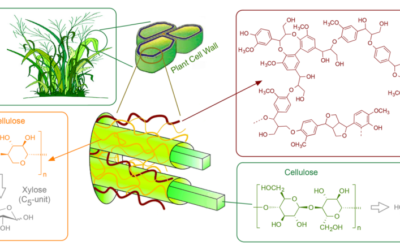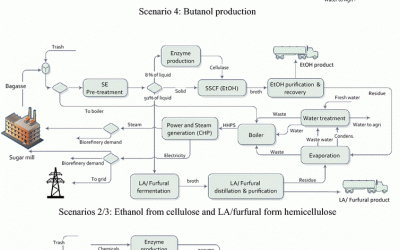
Propane-synthesis (Bio-refinery)
µ-BioRefinery™ or n-BioRefinery™ are two of DalinYebo’s biorefining platforms that are designed for future technologies ..
.. such as the one described in the the following research article below.
A microbial platform for renewable propane synthesis based on a fermentative butanol pathway (Abstract)
Background
Propane (C3H8) is a volatile hydrocarbon with highly favourable physicochemical properties as a fuel, in addition to existing global markets and infrastructure for storage, distribution and utilization in a wide range of applications. Consequently, propane is an attractive target product in research aimed at developing new renewable alternatives to complement currently used petroleum-derived fuels. This study focuses on the construction and evaluation of alternative microbial biosynthetic pathways for the production of renewable propane. The new pathways utilize CoA intermediates that are derived from clostridial-like fermentative butanol pathways and are therefore distinct from the first microbial propane pathways recently engineered in Escherichia coli.
Results
We report the assembly and evaluation of four different synthetic pathways for the production of propane and butanol, designated a) atoB–adhE2 route, b) atoB–TPC7 route, c) nphT7–adhE2 route and d) nphT7–TPC7 route. The highest butanol titres were achieved with the atoB-adhE2 (473 ± 3 mg/L) and atoB-TPC7 (163 ± 2 mg/L) routes. When aldehyde deformylating oxygenase (ADO) was co-expressed with these pathways, the engineered hosts also produced propane. The atoB-TPC7-ADO pathway was the most effective in producing propane (220 ± 3 μg/L). By (i) deleting competing pathways, (ii) including a previously designed ADOA134F variant with an enhanced specificity towards short-chain substrates and (iii) including a ferredoxin-based electron supply system, the propane titre was increased (3.40 ± 0.19 mg/L).
Conclusions
This study expands the metabolic toolbox for renewable propane production and provides new insight and understanding for the development of next-generation biofuel platforms. In developing an alternative CoA-dependent fermentative butanol pathway, which includes an engineered ADO variant (ADOA134F), the study addresses known limitations, including the low bio-availability of butyraldehyde precursors and poor activity of ADO with butyraldehyde.
Reference
Biotechnology for Biofuels 2015, 8:61 doi:10.1186/s13068-015-0231-1 The electronic version of this article is the complete one and can be found online at: http://www.biotechnologyforbiofuels.com/content/8/1/61
Source: dalinyebo.wordpress.com




